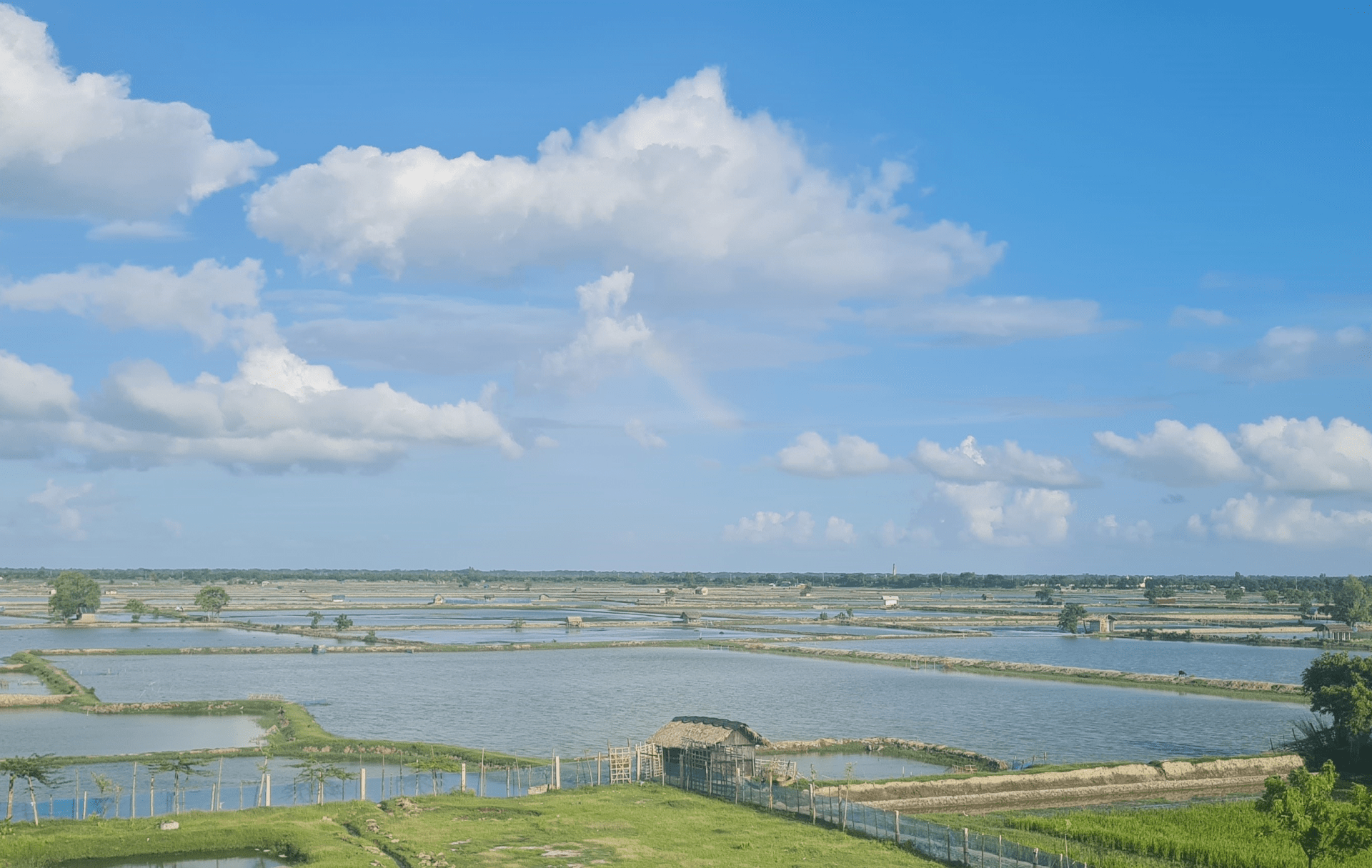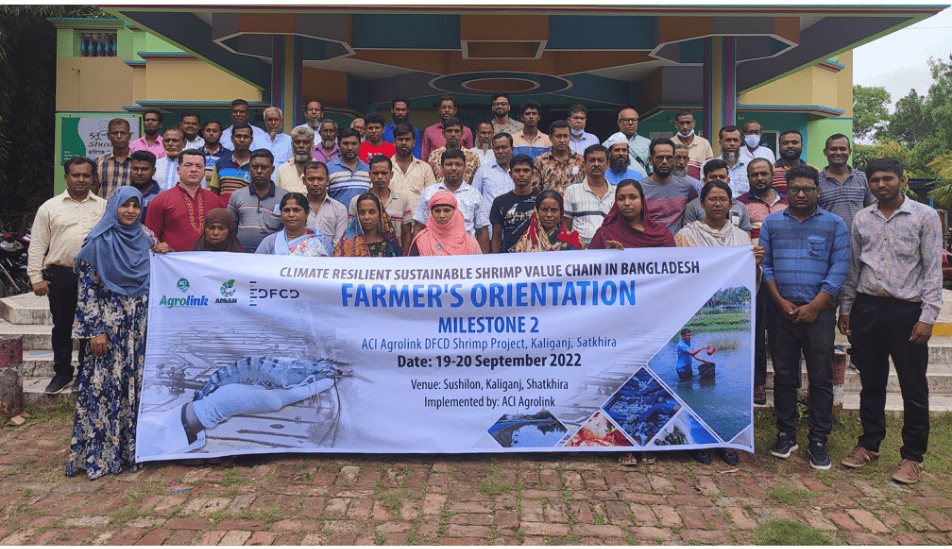Shaping a Sustainable Life
Amian is a small village connected with sundarbans through river Kakshiyali where most dwellers of the village are involved in the shrimp farming.
Water comes through the river enters into shrimp ponds and shrimps are grown naturally. ACI Agrolink Limited collects shrimp from these farmers and process them in their factory located in the middle of the shrimp farming area in Amian.
Factory location is giving an advantage on quick buying from the local farmers and this initiative also helped the local farmers to develop market linkage and through this they are managing their livelihood.
ACI Agrolink Limited is indirectly saving the nature and directly helping the farmers on shaping a sustainable life.
State-of-the-art shrimp processing factory, compliance and global certifications leading to higher brand image are the drivers of our business.

Water comes through the river enters into shrimp ponds and shrimps are grown naturally. ACI Agrolink’s brand Amian hrimp collects shrimp from these farmers and process them in their factory located in the middle of the shrimp farming area in mian. The factory is a 43,000 sq ft building with the production capacity of 35 ton per day.
Factory location is giving Amian Shrimp an advantage on quick buying from the local farmers and this initiative also helped the local farmers to develop market linkage and through this they are managing their livelihood.
Amian Shrimp is indirectly saving the nature and directly helping the farmers on shaping a sustainable life.
State-of-the-art shrimp processing factory, compliance and global certifications leading to higher brand image are the drivers of our business.





Climate Resilient Sustainable Shrimp Value Chain in Bangladesh
ACI Agrolink DFCD Shrimp Project
Besides being crucial to the macroeconomic development of Bangladesh, shrimp sector sustainability is linked to the livelihoods of millions. Low farm productivity due to climate change coupled with lack of market integration and various compliance requirement are undermining the sustainability of this important sector. Low farm productivity can be linked to a myriad of climatic, management and input related problems while presence of intermediaries in the value chain with redundant roles makes it difficult to comply with food safety standards, leading to low price for their production.
In the southern region of Bangladesh farmers cannot produce any crops due to high salinity. Many farmers depend on Sundarbans for their livelihood as they cannot make enough money from shrimp cultivation. As a result, they make damage to natural habitant and the mangrove forest.
While the project will increase the farm productivity of shrimp and ensure good price with climate resilient sustainable shrimp production, this bottom of the pyramid people will return to land to produce shrimp.
The purpose of this project is to foster an enabling environment that drives shrimp sector to progressively enhance production efficiency and secure uninterrupted international market access while adapting changing climate condition.
The Partnership:
31st May 2022 to till 31 July 2023, through the Dutch Fund for Climate and Development, SNV will be providing ACI Agrolink with technical assistance to develop a business investment proposal on climate resilient black tiger shrimp
Target Population: 100 farmers in Kaliganj, Satkhira
Climate Resilient Sustainable Shrimp Value Chain in Bangladesh
ACI Agrolink Limited-DFCD Shrimp Project
Besides being crucial to the macroeconomic development of Bangladesh, shrimp sector sustainability is linked to the livelihoods of millions. Low farm productivity due to climate change coupled with lack of market integration and various compliance requirement are undermining the sustainability of this important sector. Low farm productivity can be linked to a myriad of climatic, management and input related problems while presence of intermediaries in the value chain with redundant roles makes it difficult to comply with food safety standards, leading to low price for their production.
In the southern region of Bangladesh farmers cannot produce any crops due to high salinity. Many farmers depend on Sundarbans for their livelihood as they cannot make enough money from shrimp cultivation. As a result, they make damage to natural habitant and the mangrove forest.
While the project will increase the farm productivity of shrimp and ensure good price with climate resilient sustainable shrimp production, this bottom of the pyramid people will return to land to produce shrimp.
The purpose of this project is to foster an enabling environment that drives shrimp sector to progressively enhance production efficiency and secure uninterrupted international market access while adapting changing climate condition.
The Partnership:
31st May 2022 to till 31 July 2023, through the Dutch Fund for Climate and Development, SNV will be providing ACI Agrolink with technical assistance to develop a business investment proposal on climate resilient black tiger shrimp
Target Population: 100 farmers in Kaliganj, Satkhira





